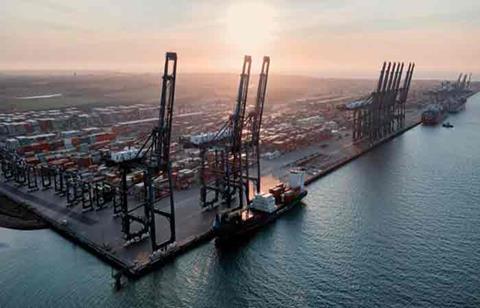
More than 1,900 crane drivers, machine operators and stevedores employed by the Port of Felixstowe have commenced eight days of strike action as part of a pay dispute.
The strike began yesterday and is set to end on 29 August. Trade union Unite said the employer has failed to improve on a 7% pay increase offer, which is below the current real inflation rate of 11.8%.
The union also reported that staff received a 1.4% below inflation increase last year, while the business made a pre-tax profit of £61 million and paid out a £99 million dividend. Port of Felixstowe handles around 48% of the UK’s import and export container trade.
Sharon Graham, general secretary at Unite, said: “Felixstowe Docks and its associated businesses have been prioritising profits and dividends instead of giving their workers a decent share of the pie. The workers at Felixstowe have Unite's full backing until this dispute is resolved.”
A spokesperson for Port of Felixstowe added: “The business is disappointed that Unite has not taken up our offer to call off the strike and come to the table for constructive discussions to find a resolution.
“We recognise these are difficult times but, in a slowing economy, we believe that the business’ offer, worth over 8% on average in the current year and closer to 10% for lower paid workers, is fair. Unite has failed our employees by not consulting them on the offer and, as a result, they have been put in a position where they will lose pay by going on strike.”
Dr Jonathan Owens, logistics and supply chains expert at the University of Salford Business School, said: “The strike is a week and may not cause too much disruption as Felixstowe is not a 'just-in-time' delivery port. Should the strike progress go on beyond the current time or more disruption planned quickly after this strike period, then alternative inbound supply routes will be found. Where the problems could arise is if there is significant spiking relating to consumer panic, which is not necessary.”
































